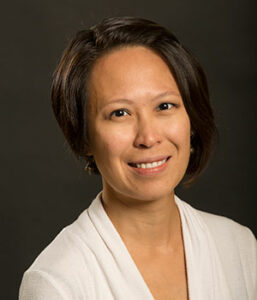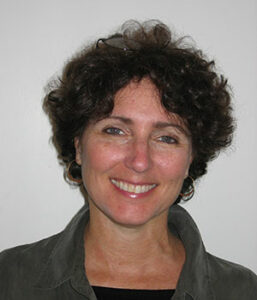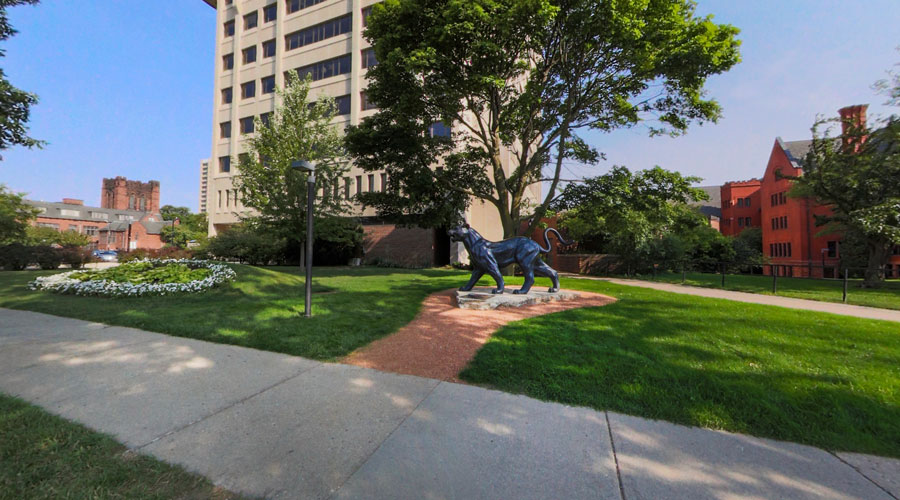Community Engagement and Education, BS / Cognitive and Developmental Sciences, MS BS, MS
Earn your BS in Community Engagement & Education (CEED), plus a master’s in Cognitive & Developmental Sciences (CDS) in just five years with the CEED/CDS accelerated graduate degree program!
Program Type
Accelerated Graduate
Program Format
On Campus
Why Choose the CEED/CDS Accelerated Graduate Program?
- Save Time: Total time to earn an undergraduate and graduate degree is five years, rather than six.
- Save Money: Pay undergraduate tuition instead of graduate tuition for the first six credits.
- More Support. Students admitted to the accelerated graduate degree program have undergrad and graduate faculty advisors to help them succeed.
- Expertise: Work closely with internationally known faculty who have a wide range of research interests.

The CEED/CDS accelerated graduate degree program is designed to meet the academic and professional goals of students who are interested in pursuing a non-licensure degree that allows them to make a lasting impact in the community.
Through the BS in Community Engagement and Education, students prepare for careers in community-based organizations, foster care agencies, child care centers, schools, and other community and educational institutions. The MS in Cognitive and Developmental Sciences provides additional training for students to have greater impact in their work with youth and families in these environments by helping them understand how children learn and grow, and how they develop within the context of their families, peers, schools and other relationships and institutions.
Graduates of the CEED/CDS accelerated degree program will be well prepared for jobs in community-based education or community-based learning and development for individuals, families and groups.
CEED/CDS Accelerated Graduate Careers
Graduates from this program have insight into the cognitive, emotional and social changes in children, adolescents and adults, especially in community contexts and contexts of both formal and informal learning.
As a non-licensing program, graduates have flexible and varied career paths including:
- Administrators of preschool and child care centers.
- Program development, education, and evaluation specialists or consultants for nonprofit and community organizations.
- Childhood education specialists.
- Human resource development specialists.
- Youth and family support specialists or services coordinators.
- Parent educators.
- Immigrant family support service coordinators.
- Education researchers.
Students interested in research or academic careers will develop a strong foundation to apply to a doctoral program.
Visit the program webpages to learn more about each program.
Program Requirements
CEED/CDS Accelerated Graduate Sample Plans
Admission Criteria
Continuing/Transfer Students
- Declared undergraduate major in Community Engagement and Education (CEED);
- 2.75 or higher cumulative GPA;
- Approximately 36 credits or more remaining for BS degree (you must be admitted to the CEED/CDS accelerated graduate degree program prior to taking courses that will count toward the master’s degree, between 69 and 105 credits or junior year);
- Advisor approval from the Department of Educational Policy & Community Studies.
High School Graduates
- Minimum GPA of 3.00 for all high school work.
- Admitted in good standing to UWM.
Application Process
- Start by meeting with your undergraduate academic advisor to determine your eligibility. Ideally, you should meet with your advisor as early as possible to ensure you have room in your undergraduate program to begin taking courses toward the graduate degree after you have taken 36 undergraduate credits (third year student). If your advisor feels you can proceed with the application, they will submit a request to change/add a program, plan or subplan (depending on your major), which will be forwarded to the program coordinators.
- To apply to the CEED/CDS accelerated graduate degree program, submit an email to the program coordinators with these required materials:
- Transcript (unofficial OK); minimum undergraduate GPA of 2.75 (entering first year students high school students can submit high school transcripts);
- Personal statement (at least 500 words, no more than 2 pages, explaining your personal and professional interest in the particular field of study and reasons for pursuing an accelerated graduate degree);
- Two recommendations: Two individuals familiar with your academic work should complete the accelerated graduate degree program recommendation form. Any letters of recommendation are optional, but must be accompanied by the recommendation form. You may download a copy that can be completed or send this link to your referees: CEED-CDS Undergraduate Recommendation Form (DOC).
- If your CEED/CDS accelerated graduate degree application is approved, you will be notified and the program/plan/subplan will be matriculated in PAWS. All students in this accelerated graduate degree program will be expected to attend an informational meeting with the full program at the start of every semester.
- Continue with your undergraduate coursework until it is time to register for two graduate-level courses (six credits) in your senior year. For courses with U/G status, you must follow the syllabus and grading scale designated for graduate students. NOTE: In order to earn graduate credit for these courses, you must receive a grade of “B” or better.
- Upon completion of the BS degree credit requirements, apply for BS degree completion to have your undergraduate degree conferred. (The MS degree cannot be conferred if your BS has not already been conferred.)
- At the beginning of your last undergraduate semester, you need to formally apply to the Graduate School. Students already in the CEED/CDS accelerated graduate degree program will complete the application for the “accelerated graduate program” in Panthera.
- Associate Professor, Educational Psychology
- Department Chair, Educational Psychology
- nguyen39@uwm.edu
- 414-251-9394
- Enderis Hall 795
- Teaching Faculty III, Educational Policy and Community Studies
- atroiano@uwm.edu
- 414-229-4724
- Enderis Hall 529



